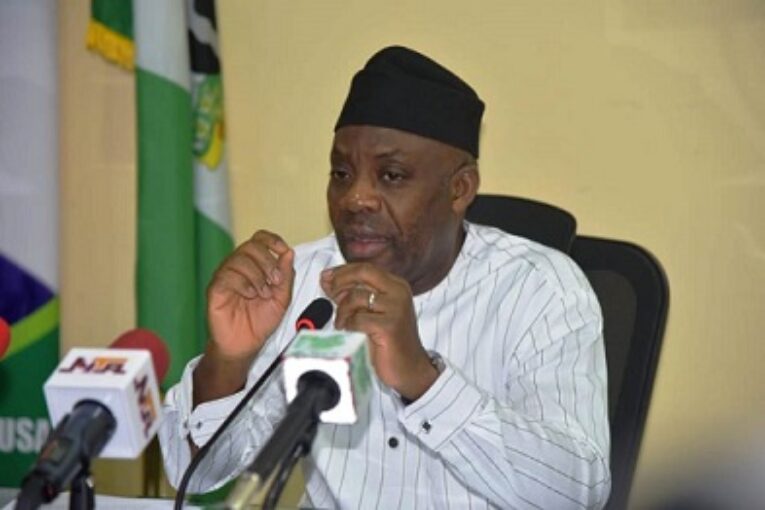
The Federal Government has announced plans to leverage the potential of public-private partnerships (PPP) to address the persistent infrastructure deficit and decay in public schools across the country.
Minister of Education, Dr Olatunji Alausa, who made this known in Abuja, described the appalling condition of most Federal Government Colleges, also known as Unity Schools, as unacceptable, noting that the government has initiated steps to tackle the issue.
Alausa spoke during the inauguration of the committee tasked with drafting guidelines and implementing PPP projects in the education sector.
He noted that education is capital intensive and, given the scale of infrastructural deficits, the government alone cannot fix the system. Hence, there is an urgent need to attract private sector funding through PPP to rebuild infrastructure across all levels of education in Nigeria.
He explained that the inauguration of the committee—chaired by the Minister of State for Education, Prof. Suwaiba Said Ahmad—marked a significant step in enhancing public-private partnerships aimed at improving Nigeria’s education sector.
Alausa urged the committee to focus particularly on PPP opportunities in secondary education, so that the framework would assist the government in revamping the 115 Unity Schools nationwide.
The Said Ahmad-led committee has been given three months to work diligently and submit its final report to the Federal Government.
Other committee members include representatives from the Infrastructure Concession Regulatory Commission (ICRC), the Ministry of Housing and Urban Development, and key directorates within the Federal Ministry of Education.
Their terms of reference include reviewing existing frameworks, drafting clear guidelines, defining roles, and proposing measurable key performance indicators for PPP projects.
Alausa said the move is a strategic effort to attract private sector investment and improve infrastructure across all tiers of education, especially in neglected community colleges.
He noted that the initiative would not only enhance transparency in PPP arrangements but also ensure the education sector benefits from sustainable private investment.
“We have to leverage private sector funding to help improve, modernize, advance, and sustain our educational system. From tertiary institutions to federal community colleges, the need for infrastructural investment is urgent.
“Some of these schools are so overcrowded and dilapidated, they don’t even have access to light or water. That’s why President Bola Ahmed Tinubu’s budgetary intervention is commendable, but clearly not enough.”
The Minister added that the new committee would also be responsible for setting up a standardised oversight mechanism to monitor private sector compliance and ensure that project delivery timelines are met.
According to him, there is a need to think outside the box and be innovative in solving the numerous challenges confronting the education sector. However, he insisted that such innovations must not be implemented in a disorganised manner—hence the need for the committee.
He acknowledged that the Tertiary Education Trust Fund (TETFund) is doing a lot in tertiary institutions but stressed that private sector intervention is needed to bridge the gaps.
“We can’t keep doing the same things and expect different results. That’s why this committee will not just draft guidelines but also recommend a reporting framework and penalties for default. It’s time we brought structure and accountability to PPPs in education. We want a model that other ministries can replicate.”
Alausa emphasised that the oversight body will include key departmental heads from the Ministry, such as the Directors of Legal, Procurement, and Education Departments, who will be tasked with tracking the progress of each PPP initiative and reporting directly to the ministry.
Responding on behalf of the committee, Director of Senior Secondary Education, Hajia Binta Abdulkadir, commended the Minister for his commitment to lasting reforms in education.
“I commend and appreciate the Honorable Minister of Education, Dr. Olatunji Alausa, for his insight and firm belief in transforming education. This PPP initiative will go a long way in addressing the infrastructural challenges plaguing our schools. It’s not just a policy, it’s a new beginning,” she said.
She also acknowledged the cost-intensive nature of quality education and the need for all stakeholders to rally behind the government’s efforts.
“Education is one of the most expensive enterprises anywhere in the world, yet we often leave it entirely to government.
“But with this kind of leadership, I believe we can turn things around. Your passion is evident. You’ve taken the bull by the horns, and if you ask me, I’d say eight years in office wouldn’t even be enough,” she added, drawing applause from the audience.




